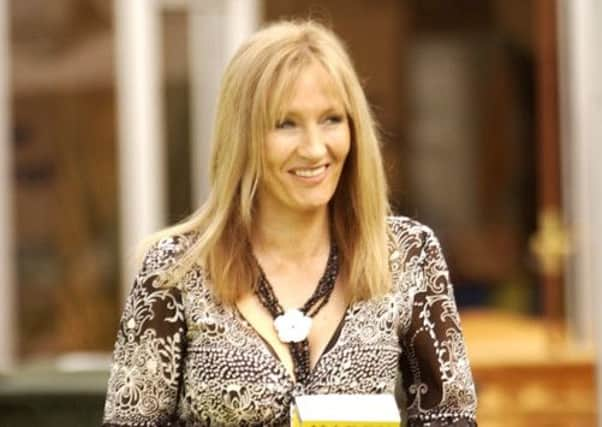Comment: single parents are not always able to work


But then the author wrote an impassioned piece on the plight of single parents for the charity Gingerbread and I remembered why, despite her occasional chippiness, she is one of my heroes. Not only is she responsible for inspiring a generation of children to read, but she has retained her social conscience, despite having achieved the kind of wealth and status that might have turned the most level of heads. And she doesn’t exercise it in a patrician, “here’s a few hundred thousand for your worthy cause” kind of a way (although she does donate large sums) but by actively campaigning on those issues about which she feels most strongly.
Unsurprisingly, there’s little Rowling feels more strongly about than single parents. Although she baulks at interviewers’ constant allusions to the days she spent writing in Nicolson’s Cafe in Edinburgh, her daughter Jessica in a buggy beside her, it has long been apparent that the hardships she faced are more than just the invention of some real-life Rita Skeeter.
Advertisement
Hide AdAdvertisement
Hide AdIn her essay, she talks about the stigma of being an “unmarried mother” and about the daily grind of trying to raise a child alone while living on the breadline in the recession of the early 1990s. If anything, she says, things are worse today. The “striver versus skiver” rhetoric being hawked by the government has increased the sense of shame, while its welfare reforms are hitting lone parents the hardest. Yet she is prouder of her years as a single mother than any other time in her life, and why wouldn’t she be? Far from “skiving” she spent her time working – caring for Jessica, doing admin at a nearby church and writing her books. And her reward? Her daughter’s revelation that, in the first five years of her life, she didn’t feel poor, just happy.
That’s some achievement and one that resonates with me. From the age of ten, I grew up in a single-parent family at a time and in a place where it was unusual enough to define you. In many ways we were luckier than Rowling; we owned our own house and had some practical support in the form of our grandmother, who came to live with us. Also, because my dad died as opposed to beating or abandoning us, there was no great stigma, unless you count the feeling of exclusion when other children talked about their home life or the knowledge that people were pointing you out as an object of pity.
But it was still hard. We didn’t have a car, so in the first few years my mother, who hadn’t previously worked, took two buses a day to and from the primary school where she’d managed to get a teaching post. There were no after-school clubs back then, so for a short time my brother and I were latchkey kids. And though friends rallied round with lifts so my own social life was unaffected, it must have been gruelling for her, with little spare cash, no nights out and no-one to share the emotional burden. I hope she feels as proud of her achievement as Rowling does.
Some things have improved over the last 35 years. There is better nursery provision now, with every child over three entitled to a free morning or afternoon place (more for those in the most need). And there is a greater recognition within schools that not everyone belongs to a traditional nuclear family. Yet, somewhat bizarrely given the way social mores have changed, the stigma surrounding lone parents has stuck. Having sex with multiple partners may no longer see you branded a fallen woman, but raising children alone comes pretty close, particularly if you claim benefits.
It doesn’t matter that figures show 49 per cent of the UK’s two million single parents had their children within marriage or that 60 per cent of them are in work (albeit often low-paid), the assumption seems to be that they are making a lifestyle choice, presumably because struggling to put food on the table while living in substandard accommodation is such an appealing prospect. The worst of it is that, by portraying employment as the route out of poverty, David Cameron peddles the illusion that all single parents should be thriving (and makes failures out of those who aren’t), even though the reality is that flexible working hours, affordable childcare and a living wage are still a pipe dream for most.
In an ideal world, perhaps more relationships would survive, but what kind of a message is this scapegoating of single parents sending out? That couples should stay together in unhappy, abusive marriages? That single mums and dads are to blame for their straitened circumstances? Or that children should pay the price of their parents’ mistakes? Most lone parents are, like Rowling, trying hard to shield their offspring from the circumstances in which they find themselves. Few are going to see their lives transformed as dramatically as hers as a result of their endeavours. But it would be good if the government could cut them just a little slack, supporting their efforts rather than undermining them, so that their children might look back on their childhoods and, like Jessica, remember being happy as opposed to poor.